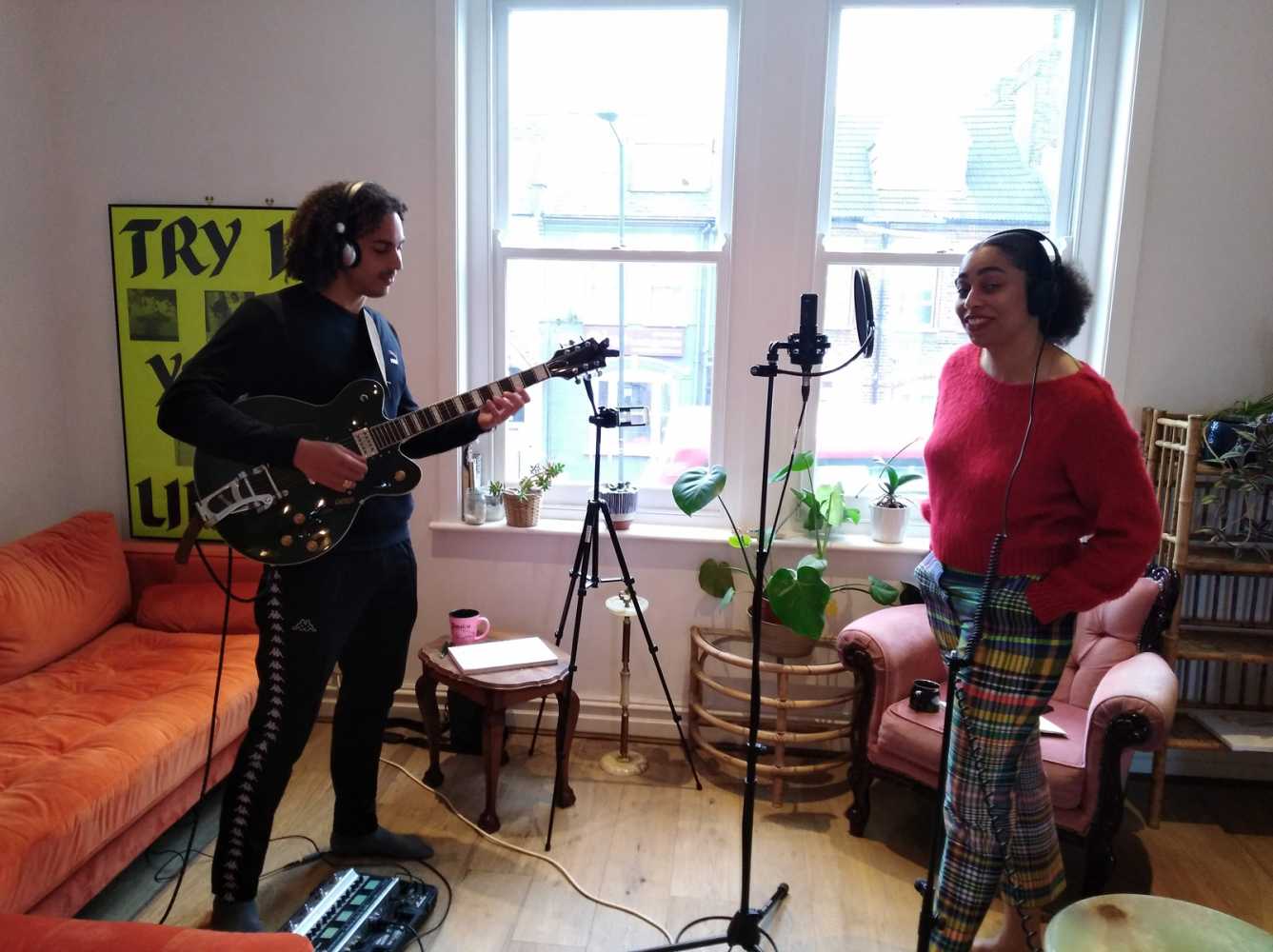In the kitchen with DiGiGrid and Celeste
- Details

Trained at the Guildhall School of Music and Drama, he spent the early part of his career at Sound by Design, during which time he handled the Royal Albert Hall in-house sound contract, including taking responsibility for the BBC Proms live requirements.
In 2012, Phil went freelance, creating Phil Wright Sound Limited and has since worked on a very wide range of projects. The impact of the Covid-19 pandemic has been keenly felt throughout the industry, but creative solutions for audio conundrums are never far from Phil’s mind, as was the case recently when his friend Jaap Pronk of TM Audio in the Netherlands, reached out for help.
At the beginning of this year, British-Jamaican soul singer Celeste won BBC Music’s Sound of 2020. The annual award is given to artists tipped to be successful during the year and its previous recipients include Adele, Haim and Ellie Goulding.
For Celeste, whilst lockdown has meant the suspension of live concerts, it hasn’t meant withdrawing from the public eye. The artist and her management team have found creative ways to stay in touch with her growing audience. As well as broadcasting via social media platforms, she is in demand for radio and TV appearances, which is where Phil Wright enters the story...
Phil became involved when Dutch national radio station 3FM was seeking an audio solution for a lockdown broadcast. Not unreasonably, they wished to capture Celeste’s performance as clearly and professionally as possible. 3FM contacted Jaap Pronk of Sound providers TM Audio in Utrecht for suggestions as to who might be able to help in the UK. Jaap put out a call for help to his contacts which Phil had no hesitation in answering. Phil explains:
“I think Celeste had done a couple of performances from lockdown on Zoom by that stage - things like the Graham Norton show. Whilst that was perfectly serviceable for pictures, the audio wasn’t really there, so I said yes that’s fine - I’ve got DiGiGrid IOS-XLs, some nice Sony C100 condenser mics, I had access to a Comrex IP Audio Codec and so I went over to Celeste’s home.”
The project was conducted under strict social distancing and hygiene protocols. At no time was Phil in the same room as Celeste or her flatmates, and the small amount of kit used in the different spaces was thoroughly cleaned down prior to and after use:
“In this scenario, it was important to take in only the smallest amount of gear, with the smallest possible footprint. I went into the empty lounge, with mask and gloves, to set up the studio space, and then retreated to the kitchen where I had the DiGiGrid units and my laptop. Celeste then came into the lounge to record. Using SoundGrid as a little studio setup, I put together a mix that Celeste and her guitarist were happy with, which was broadcast to 3FM. Obviously I brought production talkback from 3FM back into the artists’ ears so they could hear the show’s hosts.”
The day after the broadcast, Celeste and her management called Phil to say that having listened to the broadcast, they thought it was “amazing” and asked if he could repeat the feat for her short-notice appearance on the BBC’s Big Night In television programme. Having seen a number of recent television broadcasts recorded in less-than-ideal circumstances, Celeste was anxious that she did not fall foul of inferior sound. Phil was only too happy to repeat the trick:
DiGiGrid’s brand manager Dan Page notes, “Even under such unusual circumstances, Phil adopted the can-do approach so typical of creative audio professionals. This small victory in achieving an excellent outcome against the odds is surely a pointer to the wider resourcefulness of our industry and how adaptable and flexible it continues to be, whatever the challenges to be faced.”


















